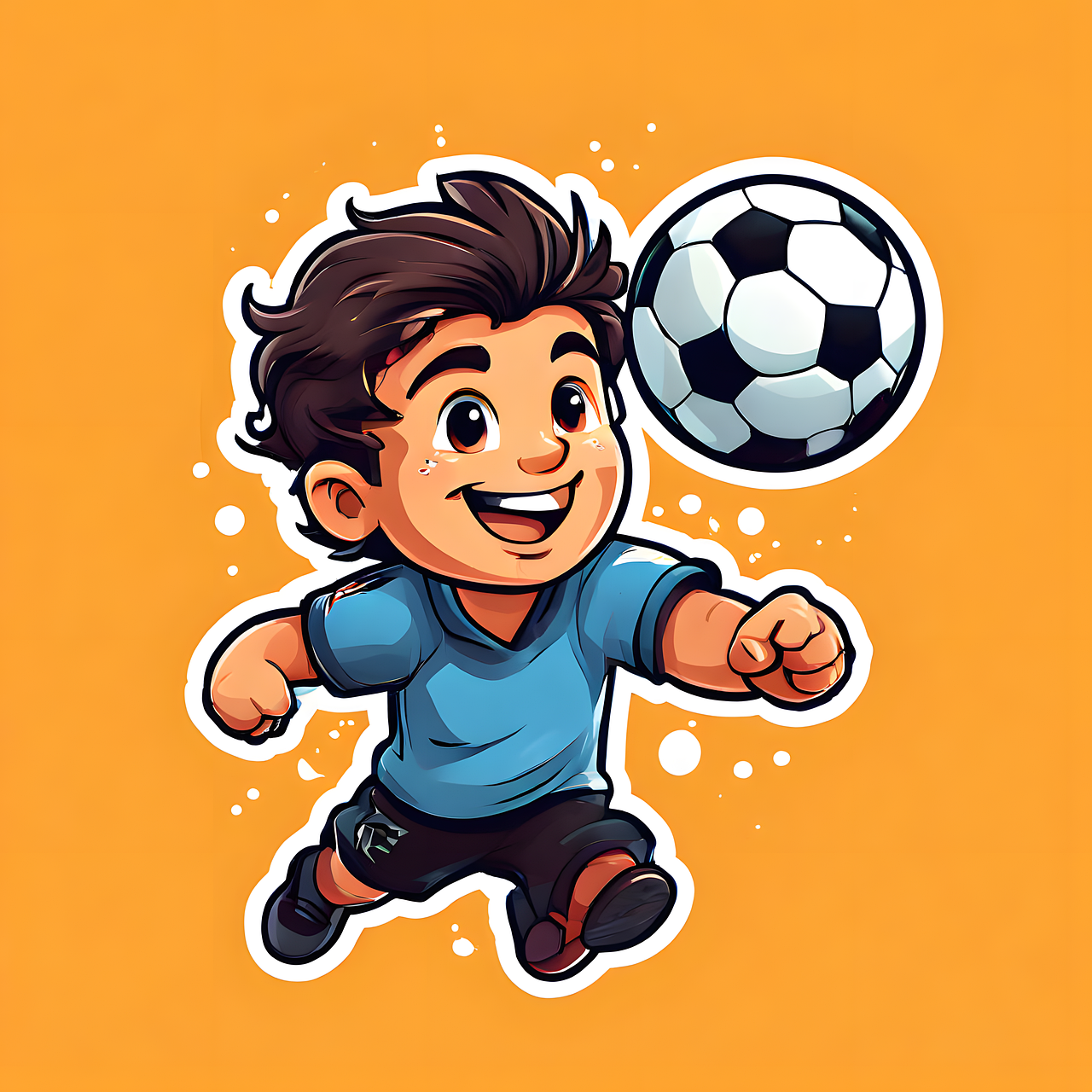
The Positive Impact of Gaming: Exploring the Benefits of Video Games on Cognitive Skills
Video games have often been criticized for their potential negative effects on players, particularly young people. However, recent research has shown that gaming can have a multitude of positive impacts, especially when it comes to enhancing cognitive skills. As the gaming industry continues to grow and evolve, it is important to explore these benefits and understand how video games can be leveraged as a tool for cognitive development.
Understanding Cognitive Skills
Cognitive skills are the mental capabilities that enable us to process information, learn, remember, reason, and make decisions. These skills are crucial for everyday functioning and can be honed through various activities, including gaming. Video games, with their complex tasks and problem-solving elements, offer unique opportunities to improve a range of cognitive abilities.
Enhancing Problem-Solving Abilities
One of the most significant cognitive benefits of gaming is the enhancement of problem-solving skills. Many video games require players to make quick decisions, adapt to new challenges, and devise strategies to overcome obstacles. For instance, puzzle games and strategy games like Tetris or Chess demand players to think critically and develop solutions, thereby improving their problem-solving abilities.
Improving Memory and Concentration
Video games often require players to remember various elements such as maps, rules, and strategies. This constant need to recall information can significantly enhance both short-term and long-term memory. Games like dual-n-back exercises are designed specifically to boost working memory. Furthermore, the immersive nature of games demands sustained attention and focus, leading to improved concentration levels over time.
Boosting Multitasking Skills

Many games require players to manage multiple tasks simultaneously, such as navigating environments, strategizing, and responding to dynamic changes in the game. This aspect of gaming can enhance a player’s ability to multitask effectively. Real-time strategy games and action games, where players need to monitor various aspects and make quick decisions, are excellent examples of how gaming can improve multitasking abilities.
Enhancing Spatial Awareness
Spatial awareness is another crucial cognitive skill that can be developed through gaming. Games that involve navigating 3D environments, such as Minecraft or adventure games, help players understand spatial relationships and improve their ability to visualize and manipulate objects in space. This skill is particularly useful in fields that require a strong spatial understanding, such as architecture and engineering.
Fostering Creativity
Video games can also serve as a powerful platform for creativity. Games that offer open-world exploration, sandbox mode, and creative building tasks encourage players to use their imagination and create unique solutions. This creative aspect of gaming can translate into real-life skills, fostering innovation and original thinking in various professional and personal contexts.
Developing Social Skills Through Gaming
While gaming is often perceived as an isolated activity, many modern games incorporate social elements that can help players develop interpersonal skills. Multiplayer games and online communities encourage communication, teamwork, and collaboration. Players learn to work together to achieve common goals, negotiate roles, and manage conflicts—skills that are highly valuable in real-world social interactions and professional environments.
The Role of Educational Games
Educational games are specifically designed to promote learning and cognitive development. These games often focus on specific subjects such as math, science, or language arts. By integrating educational content with engaging gameplay, these games can make learning more enjoyable and effective. Research has shown that educational games can enhance students’ motivation and improve academic performance in various subjects.

The Importance of a Balanced Approach
While the cognitive benefits of gaming are significant, it is important to maintain a balanced approach to gaming. Excessive gaming can lead to negative effects, such as reduced physical activity and social isolation. However, when integrated responsibly into a balanced lifestyle, gaming can be a valuable tool for cognitive development and personal growth.
Takeaways
In conclusion, video games offer a wide range of cognitive benefits that can positively impact players of all ages. From enhancing problem-solving skills and memory to fostering creativity and social skills, the potential of gaming to contribute to cognitive development is substantial. As research continues to uncover the various ways in which gaming can benefit the brain, it is clear that video games can be a powerful tool for enhancing cognitive skills. By embracing a balanced approach to gaming, individuals can leverage these benefits to improve their cognitive abilities and overall quality of life.
Case Studies and Research Findings
Numerous studies have been conducted to investigate the impact of video games on cognitive skills. One such study published in the journal Computers in Human Behavior found that action video games can enhance perceptual motor skills and cognitive flexibility. Participants who played action games showed improved attention and the ability to switch between tasks more efficiently compared to non-gamers.
Another study published in Nature highlighted the potential of 3D video games to improve memory formation. The research indicated that participants who played 3D platform games experienced increases in hippocampal grey matter, which is crucial for memory and spatial navigation.
Gaming as a Tool for Rehabilitation

Beyond cognitive enhancement, video games are increasingly being used in therapeutic settings. Rehabilitation programs often incorporate gaming technology to aid in the recovery process. For instance, games that require physical movement are used to help patients regain motor skills after strokes or injuries. The engaging nature of games can motivate patients to stick with their therapy, which can lead to more successful outcomes.
Moreover, cognitive training games are being utilized to support individuals with cognitive impairments, such as those with Alzheimer’s disease or ADHD. These games are designed to target specific cognitive functions, helping users to improve their mental agility and quality of life.
The Future of Gaming and Cognitive Development
As technology continues to advance, the potential for video games to contribute to cognitive development will only grow. Virtual reality (VR) and augmented reality (AR) are emerging as powerful tools that provide immersive learning experiences. These technologies can simulate real-world environments, offering opportunities for experiential learning and cognitive enhancement that were previously unimaginable.
Furthermore, the integration of artificial intelligence in games can lead to adaptive learning experiences that are tailored to the individual’s pace and skill level. This personalization can maximize the cognitive benefits of gaming, ensuring that players are both challenged and engaged.
Practical Tips for Maximizing the Cognitive Benefits of Gaming
To fully harness the cognitive benefits of gaming, it is important for players and parents to make informed choices about the types of games played and the amount of time spent gaming. Here are some practical tips:
- Choose Games Wisely: Opt for games that challenge cognitive skills and offer meaningful content. Educational and strategy games can be particularly beneficial.
- Set Time Limits: Establish reasonable gaming schedules to prevent excessive play and ensure a healthy balance with other activities.
- Engage in Diverse Gaming Experiences: Experiment with different genres of games to develop a broad range of cognitive skills.
- Encourage Social Gaming: Participate in multiplayer games or gaming communities to enhance social skills and teamwork.

Final Thoughts
Video games are more than just a source of entertainment; they are a dynamic tool that can positively influence cognitive development. By understanding and leveraging the cognitive benefits of gaming, individuals can enhance their mental skills and apply them to various aspects of life. As the gaming landscape continues to evolve, the potential for cognitive growth through gaming will expand, offering exciting opportunities for education, rehabilitation, and personal development.
It is essential to continue exploring and researching the cognitive impacts of gaming to fully understand its potential and mitigate any risks. By doing so, we can create a balanced approach that maximizes the benefits of gaming for cognitive skills and overall well-being.
Balancing Screen Time with Physical Activity
While video games offer numerous cognitive benefits, it is crucial to balance screen time with physical activity. Engaging in regular physical exercise is essential for overall health and complements the mental benefits of gaming. Many experts recommend a mix of physical activities such as outdoor sports, yoga, or dance, alongside gaming. This balance ensures that players maintain a healthy lifestyle while benefiting from the cognitive enhancements that gaming provides.
Parents can encourage active gaming by selecting games that incorporate physical movement, such as those compatible with motion-sensing devices. These games not only promote physical activity but also enhance motor skills and coordination.
Parental Involvement and Monitoring
Parental involvement is critical in ensuring that children gain the maximum cognitive benefits from gaming while avoiding potential pitfalls. Parents should engage with their children’s gaming activities by playing together, discussing game content, and setting boundaries on gameplay duration. This involvement allows parents to guide their children towards games that are both entertaining and educational.

Additionally, monitoring the types of games children play and the online interactions they engage in can prevent exposure to inappropriate content and help maintain a positive gaming experience.
The Role of Game Developers in Cognitive Enhancement
Game developers play a significant role in shaping the cognitive outcomes of gaming. By designing games that incorporate elements of learning, problem-solving, and creativity, developers can create experiences that are both enjoyable and intellectually stimulating. Collaborating with educators and cognitive scientists can lead to the development of games that specifically target and enhance cognitive skills.
Furthermore, developers can contribute to cognitive enhancement by regularly updating games with new content and challenges, keeping players engaged and continually stimulating their cognitive abilities.
Building a Community Around Cognitive Gaming
A growing community of gamers, educators, and researchers is focusing on the cognitive benefits of gaming. Online forums, social media groups, and gaming conventions provide platforms for sharing research findings, discussing strategies for cognitive development, and promoting games that enhance mental skills. This community serves as a valuable resource for individuals seeking to understand and maximize the cognitive benefits of gaming.
Through these networks, gamers can connect with others who share similar interests, exchange tips on effective gaming habits, and participate in research studies that explore the cognitive impacts of various games.
Conclusion: Embracing the Cognitive Potential of Gaming
In summary, the cognitive benefits of video games are vast and varied, offering opportunities for problem-solving, memory enhancement, multitasking, and more. By embracing gaming as a tool for cognitive development, individuals can improve their mental skills and apply them in multiple facets of life. The key lies in adopting a balanced approach that combines gaming with physical activity, encourages parental involvement, and supports a community focused on cognitive growth.
As we continue to explore the cognitive potential of gaming, it is imperative to encourage practices that maximize benefits while minimizing risks. With the right guidance and intentionality, gaming can be a powerful ally in enhancing cognitive skills and enriching our lives.



